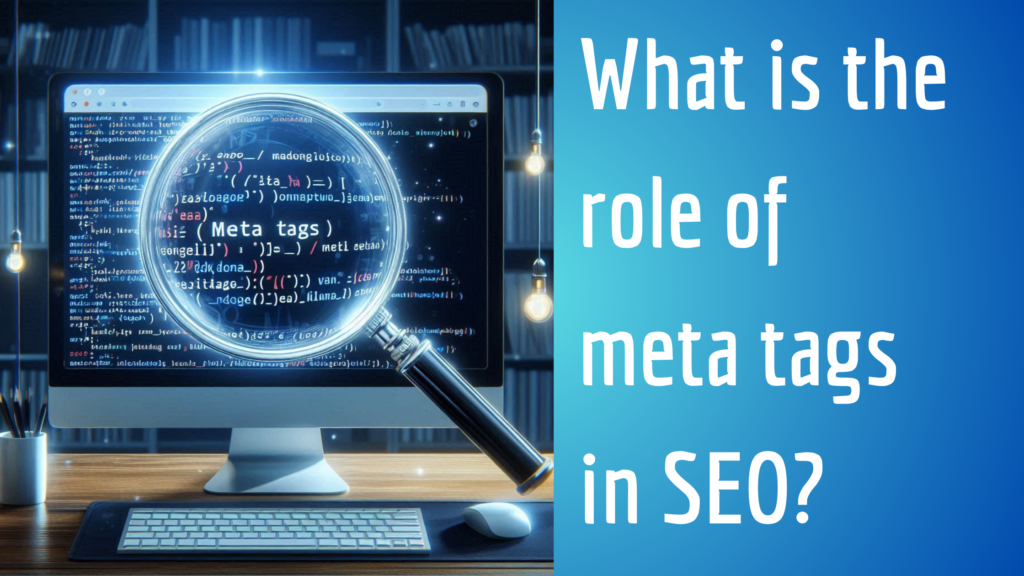Meta tags are a crucial aspect of SEO that often operate behind the scenes, yet they play a significant role in how search engines understand and rank your website. While they might seem like small snippets of HTML code, their impact on your site’s visibility in search engine results pages (SERPs) is substantial. In this guide, we’ll explore the importance of meta tags in SEO, how they influence search engine rankings, and best practices for optimizing them.
Understanding Meta Tags
Meta tags are snippets of text that describe a page’s content. Unlike regular content, they don’t appear on the page itself but only in the page’s code. Meta tags are essentially metadata, which means they provide data about the data on your webpage. The most common types of meta tags used in SEO include:
- Title Tag
- Meta Description
- Meta Keywords
- Viewport Meta Tag
- Robots Meta Tag
Each of these tags serves a different purpose in how search engines and users perceive your site.
The Importance of Title Tags
The title tag is one of the most important meta tags for SEO. It appears as the clickable headline in SERPs and at the top of your web browser. Search engines use title tags to understand the context of your page, making it critical for keyword optimization. A well-crafted title tag can significantly impact your click-through rate (CTR) because it’s often the first thing users see in search results.
Best Practices:
- Keep the title tag under 60 characters to ensure it’s not truncated in search results.
- Place the most important keywords at the beginning.
- Make it compelling and relevant to the content of the page.
Meta Descriptions: Your First Impression
The meta description is a brief summary of what the page is about. While it doesn’t directly affect rankings, it’s crucial for user engagement. A compelling meta description can improve your CTR by enticing users to click on your link in the search results.
Best Practices:
- Keep the meta description between 150-160 characters.
- Include a call to action or a compelling reason for the user to visit the page.
- Use relevant keywords, but ensure the description reads naturally and is engaging.
The Declining Role of Meta Keywords
Meta keywords used to be an essential part of SEO, allowing webmasters to list out the keywords relevant to the page. However, due to keyword stuffing and misuse, search engines like Google have largely ignored meta keywords for ranking purposes. Although some search engines may still consider them, their influence has significantly waned.
Best Practices:
- Focus on other SEO factors like content quality and user experience.
- If using meta keywords, limit them to relevant terms and avoid overstuffing.
Viewport Meta Tag: Enhancing Mobile SEO
The viewport meta tag is essential for responsive web design, which is crucial for mobile SEO. This tag controls how your webpage is displayed on different devices, ensuring that your site is mobile-friendly—a key ranking factor in search engines.
Best Practices:
- Use the tag <meta name=”viewport” content=”width=device-width, initial-scale=1.0″> to ensure your site adjusts to any screen size.
- Test your website on various devices to ensure it displays correctly.
Robots Meta Tag: Guiding Search Engine Crawlers
The robots meta tag gives search engines instructions on how to crawl and index pages on your site. For instance, you can use it to prevent a page from being indexed, or to block search engines from following certain links on a page.
Best Practices:
- Use the noindex tag to prevent duplicate or irrelevant pages from being indexed.
- Use nofollow for links you don’t want to pass link equity to.
Conclusion
Meta tags, though often overlooked, are fundamental to a well-rounded SEO strategy. They help search engines understand the content and purpose of your pages, influence how your site appears in SERPs, and can greatly impact user engagement. By optimizing your meta tags, you ensure that your website is not only visible to search engines but also attractive to users, ultimately driving more traffic to your site.
To maximize the effectiveness of your meta tags, always keep your target audience in mind, focus on relevancy and readability, and regularly review and update your tags to align with the latest SEO best practices.

